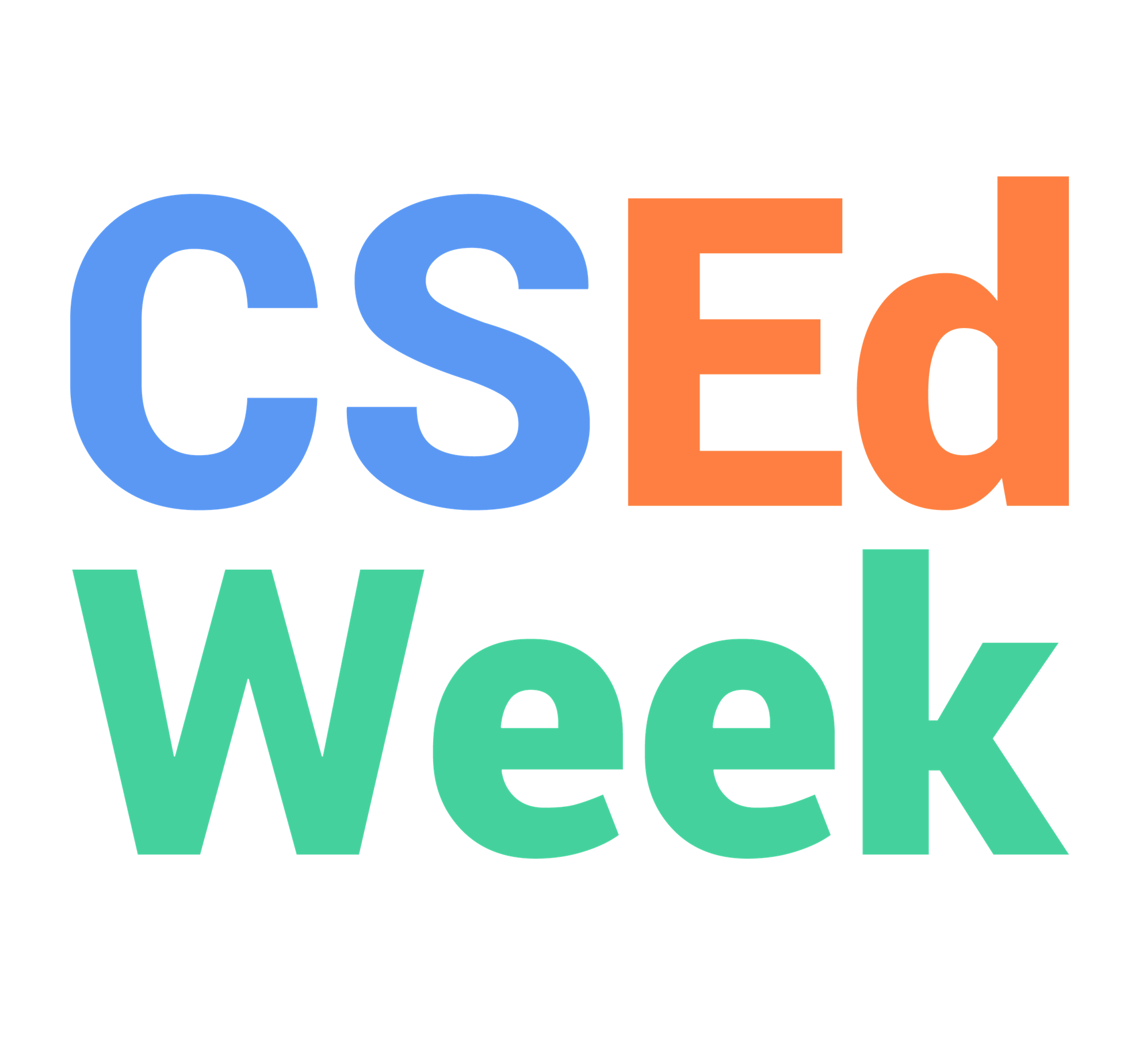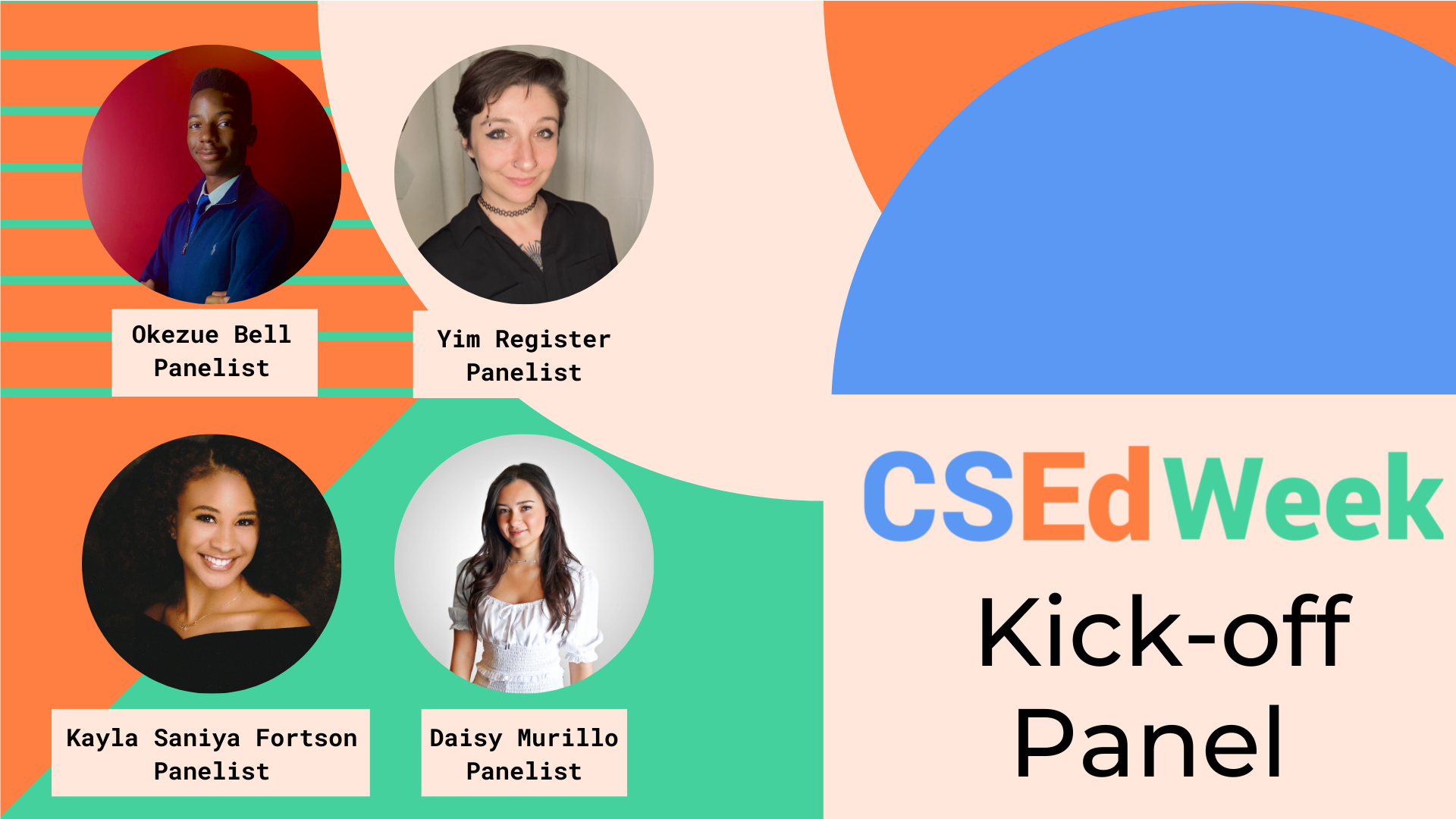
Join us as we celebrate the start of CSEdWeek! As we aim to celebrate our progress, we’ll hear from a select panel of the 2022 CS Heroes about their own progress, and celebrate community milestones in CS Education. Our panelists will discuss their own journeys to computer science, what has inspired them, and their recommendations for how we can continue to advance so that every student has an equal opportunity to learn computer science. Our panelists include Okezue Bell, Yim Register, Kayla Saniya Fortson, and Daisy Murillo.
The event will be live-streamed on Mon., Dec. 5, at 1 p.m. ET.
Panelists:
Okezue Bell: Inspired by his family and those around him, Okezue saw the lack of community-responsive applications of computer science. This led him to seek to develop solutions to catered toward the underserved. After meeting an amputee who, even after $15,000 and 3 months of rehabilitation, couldn't use his prosthetic arm properly, Okezue invented the WeArm. The WeArm is a prosthetic device costing only $400 that uses artificial intelligence, 3D-printing, and haptic technology to accurately and easily mimic the behavior of a human hand. Realizing over 10 million people shared the same story as the amputee he met, Okezue began successfully testing the arm on amputees, and is piloting in underserved clinics in Nigeria and Bosnia in 2023. The innovation has been recognized internationally by Johnson & Johnson, Microsoft, and more, and Okezue now uses his platform to uplift youth—especially those of marginalized groups—informing them of how to innovate and exposing them to STEM fields. Okezue continues to build as well, running a digital social enterprise, consulting companies, and participating in various forms of graduate and postgraduate-level academic research.
Yim Register: Yim Register believes that everyone has a story to tell. Their work uses trauma-informed computing to encourage learners to express themselves through data. They focus on the effects of social media algorithms on mental health, personal agency, and self-expression. As a nonbinary person with autism, they love building educational tools for marginalized communities to learn more about data science and machine learning. Their core principles are Joy and Justice -- combining play with self-advocacy and a vision for a better world.
Kayla Saniya Fortson: While studying as a Computer Science & Psychology student at Tulane University, Kayla Fortson has dedicated over a year of volunteer work to the Microsoft TEALS program and continues to do so. Kayla’s volunteer work consists of visiting St. Katharine Drexel Prep Academy multiple times a week and assisting young women with learning how to code. Kayla uses the pursuit of her STEM degree to give back to a community by inspiring other young Black females to follow their career dreams. She recognizes the privilege that she had to explore Computer Science at a younger age and contributes to the opportunity for other young women to get the same exposure that she had. Without it, Kayla’s love for programming may never have gotten the chance to develop, and she feels honored that she may play a part in sparking the love for another young woman to grow a passion for Computer Science.
Daisy Murillo: It is a well known fact that the software industry has a growing demand for more software engineers. The Bureau of Labor Statistics are expecting a 22% job growth in the next eight years, and there aren't just enough people ready to fill those roles. Daisy has dedicated much of her free time teaching about computer science and sharing her knowledge with others, particularly students from K-12 grade. She has been an Arizona Technolochicas Ambassador, #ItWasNeverADress Ambassador, Coding Educator for Heroes Regional Park Library, Coding Instructor for Promineo Tech coding bootcamp, an NCWIT awardee, and continues to do public speaking engagements about diversity and tech education. She looks forward to a future where students of any age, race, ethnicity, cultural background, or economic status have the access to explore CS. But, she also looks forward to a future where students are not only equipped to code everyday personal computers but quantum computers too.

